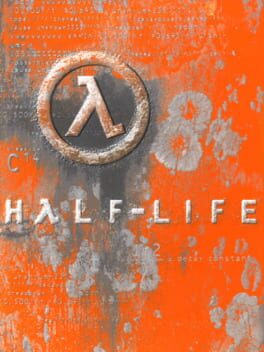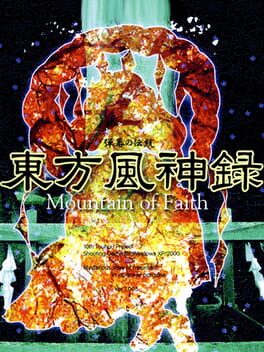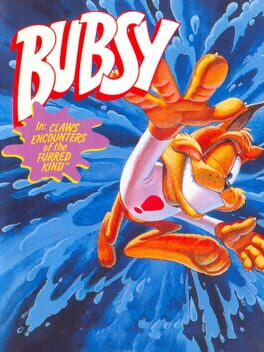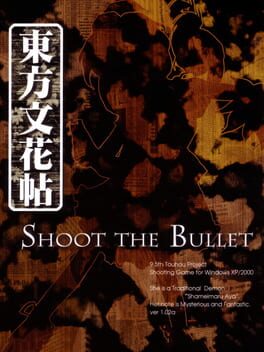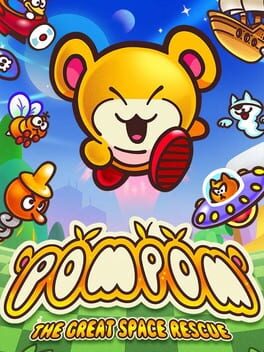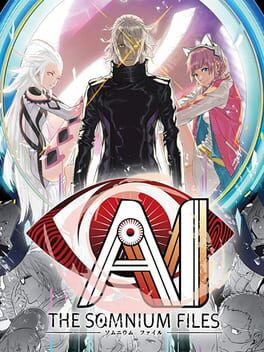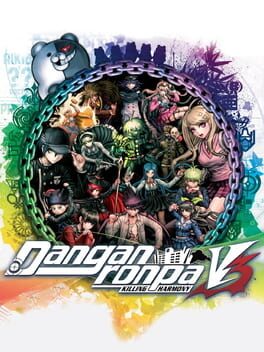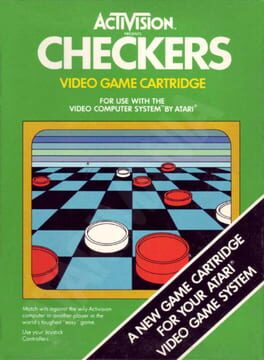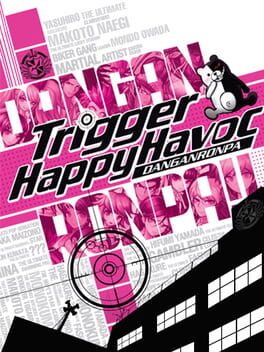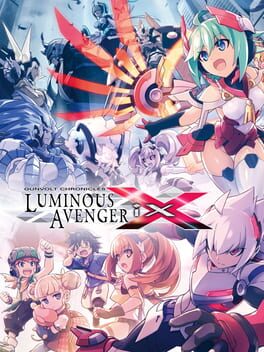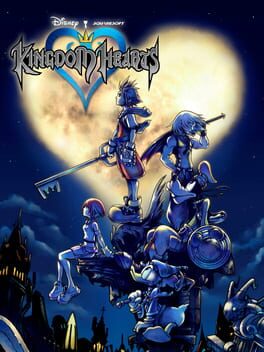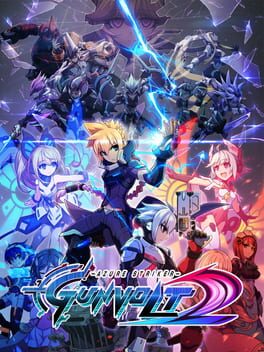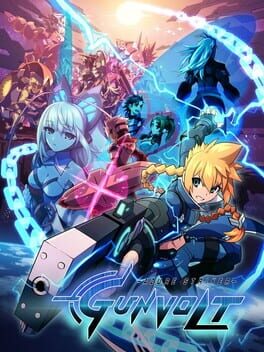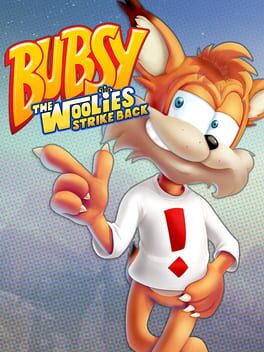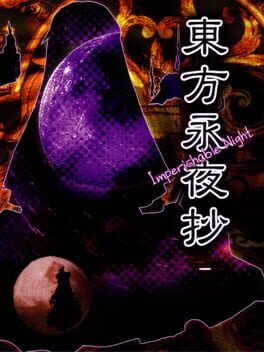UnluckyLucky
1998
Half-Life's a pretty cool game. The audiovisual design the game is so famous for is immaculate and gives a great taste of the tense enviroment around Freeman to the player, and the gunplay and general movement is quite satisfying. Strategically dispatching enemies so that you don't get lit the hell up while moving from place to place is more interesting than you might think, and the level design usually keeps things fresh if you're not sitting on a rail (lol) doing nothing for a decade. Most people who like HL1 care about its story, and though it is tied quite closely to the audio and visuals, (as that's the main way the it is told) I wasn't too big on that part of the game. It's not bad or anything, by the time I got to the core of Lambda I was kind of feeling it in fact, but the actual plot isn't anything special. My real issue with the game is its direction. HL1 often wants you to solve enviroment puzzles and figure out where to go yourself. This is good most of the time, but there's more than one segment where what the game wants you to do is too esoteric to figure out in a reasonably paced manner. This, along with the level design in general, gets particularly bad during the endgame. The Xen chapters are just not fun. Did the level designer for the rest of the game catch a cold or something?
Anyway, I don't have much to say about Half-Life that is new. It's an enjoyable shooter that aged quite well and is worth playing despite some of the silly flaws.
Anyway, I don't have much to say about Half-Life that is new. It's an enjoyable shooter that aged quite well and is worth playing despite some of the silly flaws.
Touhou's second Windows Era trilogy starts off quite strong with Mountain of Faith. While the game is mechanically simple, it runs pretty far with Touhou's basic ideas by having some of the best bullet patterns and especially pacing in the series thus far. The gameplay has had some changes still-- the way the continue system works is better than the previous games (an infinite amount; must restart the stage when using one) and encourages having a more intimate knowledge of the stage, which is great. However, I'm not a big fan of the bombs in MoF. They're too good and easy to abuse. Could've been done better.
The thing that puts this game above the others for me as a whole though is the presentation. It is consistently incredibly strong: the backgrounds are pleasing, the soundtrack is easily my favorite in the series to date, and the cast of characters rivals even Touhou 6's. Their sense of identity is very strong and while the series has always been good at this, it feels more realized than usual in this case. I particularly love Kanako, her concept as a greedy god is raw as hell.
All in all, game's great and I'm quite excited to see how Subterranean Animism will follow it up.
The thing that puts this game above the others for me as a whole though is the presentation. It is consistently incredibly strong: the backgrounds are pleasing, the soundtrack is easily my favorite in the series to date, and the cast of characters rivals even Touhou 6's. Their sense of identity is very strong and while the series has always been good at this, it feels more realized than usual in this case. I particularly love Kanako, her concept as a greedy god is raw as hell.
All in all, game's great and I'm quite excited to see how Subterranean Animism will follow it up.
I can't fucking believe that there are contrarians out there that say this game is decent. It isn't.
While I don't dislike Bubsy as a character on principle, this game does him absolutely no favors. It is consistently unfair as hell-- for a multitude of reasons. First, Bubsy accelerates at the pace of a snail, but once he gets going he puts on Luigi's Trademarked Butter Shoes and is damn near impossible to stop. This is already an issue on its own, but in Bubsy 1 you die in one hit and you absolutely will run into things you can't see if you don't inch your way forward. Even when you do that, Bubsy 1 likes to play practical jokes on the player, killing you with something nobody could have ever predicted. This usually occurs due to the incredibly small screen size in practice, and if this game didn't have the ability to forcibly scroll the screen forward by holding the R button, it would be genuinely unplayable.
And as it pertains to the things that aren't the gameplay, they're mediocre at best. The graphics are lacking and generally uninspired. Some of the tracks aren't grating, which is a positive, and I do like Bubsy's comments at the start of each level-- it would be a lot less fucking annoying in a good game where it doesn't kill you all the time.
All around the game is garbage, and Bubsy was never good.
While I don't dislike Bubsy as a character on principle, this game does him absolutely no favors. It is consistently unfair as hell-- for a multitude of reasons. First, Bubsy accelerates at the pace of a snail, but once he gets going he puts on Luigi's Trademarked Butter Shoes and is damn near impossible to stop. This is already an issue on its own, but in Bubsy 1 you die in one hit and you absolutely will run into things you can't see if you don't inch your way forward. Even when you do that, Bubsy 1 likes to play practical jokes on the player, killing you with something nobody could have ever predicted. This usually occurs due to the incredibly small screen size in practice, and if this game didn't have the ability to forcibly scroll the screen forward by holding the R button, it would be genuinely unplayable.
And as it pertains to the things that aren't the gameplay, they're mediocre at best. The graphics are lacking and generally uninspired. Some of the tracks aren't grating, which is a positive, and I do like Bubsy's comments at the start of each level-- it would be a lot less fucking annoying in a good game where it doesn't kill you all the time.
All around the game is garbage, and Bubsy was never good.
2022
Ever play Mario and Wario? Well, imagine that-- but awesome.
Pompom is an adorable SNES throwback platformer. That is, if it were made for the SNES mouse accessory and played more like a puzzle game where you guide the hamster (?) through levels with your power to create, destroy, and otherwise interact with the environment. It's quite a fun time, and the game does a good job of keeping a player on their toes by changing up the gimmicks while evolving the base gameplay. Many of the things introduced are fun to design around-- but since every level has something new, Pompom runs the risk of feeling unrefined at times. Even so, the game gives new perspective on platformers in general. Bopping a simple boss 3 times on the head is criticized in Mario entries, but it becomes far more interesting when you can't control the character directly.
Besides from the gameplay, I feel mixed on the games' aesthetics. While I appreciate how faithful it stays to the early-mid SNES feel, especially in the case of the music (which is pretty good), it doesn't... look very good. Not to say the graphics are bad, but they could be a lot better. It doesn't particularly help that Pompom can be pretty derivative at times, graphically wearing it's inspirations a little too much on my sleeve for comfort. Seriously, they don't all have to look like Mario World tiles.
Ultimately, I loved the game, and you should definitely look into it if you want a mechanically solid puzzle platformer to figure out, especially if you go for the 100%. If you have a real SNES mouse, you're obligated to use it, too.
Pompom is an adorable SNES throwback platformer. That is, if it were made for the SNES mouse accessory and played more like a puzzle game where you guide the hamster (?) through levels with your power to create, destroy, and otherwise interact with the environment. It's quite a fun time, and the game does a good job of keeping a player on their toes by changing up the gimmicks while evolving the base gameplay. Many of the things introduced are fun to design around-- but since every level has something new, Pompom runs the risk of feeling unrefined at times. Even so, the game gives new perspective on platformers in general. Bopping a simple boss 3 times on the head is criticized in Mario entries, but it becomes far more interesting when you can't control the character directly.
Besides from the gameplay, I feel mixed on the games' aesthetics. While I appreciate how faithful it stays to the early-mid SNES feel, especially in the case of the music (which is pretty good), it doesn't... look very good. Not to say the graphics are bad, but they could be a lot better. It doesn't particularly help that Pompom can be pretty derivative at times, graphically wearing it's inspirations a little too much on my sleeve for comfort. Seriously, they don't all have to look like Mario World tiles.
Ultimately, I loved the game, and you should definitely look into it if you want a mechanically solid puzzle platformer to figure out, especially if you go for the 100%. If you have a real SNES mouse, you're obligated to use it, too.
AI: The Somnium Files is a visual novel, written by Uchikoshi of Zero Escape fame. While I have... complex feelings on that series, I tried to go into this game with an open mind.
Where AI excels is it's storytelling. Now, that might be pretty obvious considering it's a visual novel, but the way the characters are connected in multi-faceted ways you only see particular sides of and then start to unravel is brilliant. Being a mystery VN, I can say that this game delivers on that front. The moment to moment writing, however, is a little more mixed. AI can transition to being very clever with its jokes to having eye rollers in a very short moment's notice. I think it's mostly good, but when it's bad, it's bad. This is especially poignant during the QTE action scenes, to which exactly 0 of them are taken seriously at all. This destroys the tension, and there's not even more than one joke there. Yes, Date, we get it. You're addicted to porn.
As it pertains to the Somniums, I think they're all terrible gameplay wise. Trial and error gameplay just isn't fun. I get that's part of the idea since dreams do not work on normal logic-- but it's just annoying for the player. They are very much carried by their themes. Some of the best ones in the game really did make me feel something despite the garbage gameplay. However, that can't save them as a whole-- a lot of the time I felt myself wishing this was just a kinetic visual novel. They bring the game down by a lot for me.
Ultimately, AI is a great game held back by the poor gameplay and moments where I wonder what the hell Uchikoshi was thinking when writing them. It is most definitely worth playing for the excellent overarching plot, but there's more to be desired.
Where AI excels is it's storytelling. Now, that might be pretty obvious considering it's a visual novel, but the way the characters are connected in multi-faceted ways you only see particular sides of and then start to unravel is brilliant. Being a mystery VN, I can say that this game delivers on that front. The moment to moment writing, however, is a little more mixed. AI can transition to being very clever with its jokes to having eye rollers in a very short moment's notice. I think it's mostly good, but when it's bad, it's bad. This is especially poignant during the QTE action scenes, to which exactly 0 of them are taken seriously at all. This destroys the tension, and there's not even more than one joke there. Yes, Date, we get it. You're addicted to porn.
As it pertains to the Somniums, I think they're all terrible gameplay wise. Trial and error gameplay just isn't fun. I get that's part of the idea since dreams do not work on normal logic-- but it's just annoying for the player. They are very much carried by their themes. Some of the best ones in the game really did make me feel something despite the garbage gameplay. However, that can't save them as a whole-- a lot of the time I felt myself wishing this was just a kinetic visual novel. They bring the game down by a lot for me.
Ultimately, AI is a great game held back by the poor gameplay and moments where I wonder what the hell Uchikoshi was thinking when writing them. It is most definitely worth playing for the excellent overarching plot, but there's more to be desired.
This game honestly impressed me. While DR1 was a solid entry in the first place, V3 takes what 1 and even 2 did right, and put it all together to make a truly special experience. It is the best DR game by far, and I'll go over what makes V3 "tick."
I want to start with the elephant in the room when it comes to this games' improvements-- the graphics. It is insane how much better V3 looks on a moment to moment basis: when I first started I literally said, quote: "This game in general has a way higher production quality than the other two ones," and that sentiment is felt. Every character is so much more expressive with the way the dialogue portraits work, and the constant use of visual effects for onomatopoeia helps the game truly come alive.
Speaking of "alive," the cast in DRV3 is the best in the series. It's not even close-- it blows the other games out of the water. A majority of the characters have depth in this game and they play off each other in a way never seen before in the series. While there still are some unfortunate stereotypes and flat characters (Tenko, Angie, Kiyo...), it is by far the least of any game in the series. It's greatly appreciated. The main characters in this game pop OFF, and all of them are incredibly thought provoking, likable, (or hateable, in an antagonist's case) and full of charm.
And as an aside, I want to mention the games' general plot without spoiling too much. DRV3 is an incredibly subversive game-- one could call it the Deconstruction of what Danganronpa is and what makes it work, in more ways than one. Unlike half the series up to this point, V3 kept me on my toes wondering what to expect next and what themes to draw out of it. In this way it feels a true follow up to DR(1) to me-- the series expects that you've played it before and will oftentimes make your question the ideas from the previous entries, which makes it an amazing sequel.
The gameplay is no slouch either: it's your usual Danganronpa fair, with some pretty good additions this time around. I'm not into the Perjury system in Nonstop Debates as much as most people, however. My issue with it lies in its utilizations: there really could have been more of it and in less obvious places. Otherwise, though, a lot of the new stuff is really good. Rebuttal Showdown (Truth Blade) is my favorite non-standard minigame in the series, and Debate Scrums and Mass Panic Debates (which aren't super different from nonstops) are awesome. Most of the other stuff is just okay and not really worth talking about, though, and Psyche Taxi is the second worst minigame in the series right after 2's """""""IMPROVED""""""" Hangman's Gambit. You win some, you lose some I guess.
Aside from those few stinkers, my biggest issue with the game is its pacing. While it is much better than anything 2 ever did pacing wise, there are multiple moments in DRV3 where I feel like the game is meandering for no reason, particularly in the trials. Pretty much every one in the game does it besides the first one, and while I don't hate them for it it sort of becomes a "death by a thousand cuts" situation. Not to mention that V3 has a few stinker trials of its own: particularly V3-3 which feels incredibly formulaic in a game that makes an effort to subvert the "Danganronpa Formula" and not play by the exact same rules you've seen 2, if not 3 times already.
Ultimately, though, I loved it. Danganronpa V3 is a stellar game, and for any fans of the original it is a must play recommendation from me. (Also, if you don't like the ending you got filtered. I don't make the rules.)
I want to start with the elephant in the room when it comes to this games' improvements-- the graphics. It is insane how much better V3 looks on a moment to moment basis: when I first started I literally said, quote: "This game in general has a way higher production quality than the other two ones," and that sentiment is felt. Every character is so much more expressive with the way the dialogue portraits work, and the constant use of visual effects for onomatopoeia helps the game truly come alive.
Speaking of "alive," the cast in DRV3 is the best in the series. It's not even close-- it blows the other games out of the water. A majority of the characters have depth in this game and they play off each other in a way never seen before in the series. While there still are some unfortunate stereotypes and flat characters (Tenko, Angie, Kiyo...), it is by far the least of any game in the series. It's greatly appreciated. The main characters in this game pop OFF, and all of them are incredibly thought provoking, likable, (or hateable, in an antagonist's case) and full of charm.
And as an aside, I want to mention the games' general plot without spoiling too much. DRV3 is an incredibly subversive game-- one could call it the Deconstruction of what Danganronpa is and what makes it work, in more ways than one. Unlike half the series up to this point, V3 kept me on my toes wondering what to expect next and what themes to draw out of it. In this way it feels a true follow up to DR(1) to me-- the series expects that you've played it before and will oftentimes make your question the ideas from the previous entries, which makes it an amazing sequel.
The gameplay is no slouch either: it's your usual Danganronpa fair, with some pretty good additions this time around. I'm not into the Perjury system in Nonstop Debates as much as most people, however. My issue with it lies in its utilizations: there really could have been more of it and in less obvious places. Otherwise, though, a lot of the new stuff is really good. Rebuttal Showdown (Truth Blade) is my favorite non-standard minigame in the series, and Debate Scrums and Mass Panic Debates (which aren't super different from nonstops) are awesome. Most of the other stuff is just okay and not really worth talking about, though, and Psyche Taxi is the second worst minigame in the series right after 2's """""""IMPROVED""""""" Hangman's Gambit. You win some, you lose some I guess.
Aside from those few stinkers, my biggest issue with the game is its pacing. While it is much better than anything 2 ever did pacing wise, there are multiple moments in DRV3 where I feel like the game is meandering for no reason, particularly in the trials. Pretty much every one in the game does it besides the first one, and while I don't hate them for it it sort of becomes a "death by a thousand cuts" situation. Not to mention that V3 has a few stinker trials of its own: particularly V3-3 which feels incredibly formulaic in a game that makes an effort to subvert the "Danganronpa Formula" and not play by the exact same rules you've seen 2, if not 3 times already.
Ultimately, though, I loved it. Danganronpa V3 is a stellar game, and for any fans of the original it is a must play recommendation from me. (Also, if you don't like the ending you got filtered. I don't make the rules.)
1980
It's time I give this one a proper review.
First thing's first is to say why I even played this series to begin with: out of spite. Entirely out of spite and the hopeful belief that even something as "hated" as Danganronpa has merit-- most things have something. And I think it turned out well.
This game is flawed, but it has heart. If you're reading this, I don't think you need me to explain what this game is about-- 15 students trapped in a school, forced to play a killing game. The setup is as old as time, but DR takes some genuinely great strides with the idea. The way the plot is executed can make for some emotional (though I don't necessarily mean "sad") moments-- and the fact that YOU must be the one to play the game does it heavy favors. The way the game starts to wear on you feeling trapped in Hope's Peak, repeating the same menial tasks day after day is outstanding-- supported with the Beautiful tracks, (the best in the entire series) DR makes it clear that this is an interactive experience even without the core gameplay. When it comes to the story, my issue lies in the characters. Very many of them are not well written and feel more like stereotypical husks than actual characters. A story having flat characters is okay, but when people can genuinely be reduced down to being a single idea and nothing else I take issues with it. While this game does have an absolutely stellar character-- the best in the series, in fact-- most of them aren't Kyoko Kirigiri, and therefore aren't too great.
As it pertains to the actual gameplay side of things, the trials, I like them. In DR1 they are quite well paced and usually are pretty reasonable on the prompts given. Shooting statements just feels good to do, and the other styles of gameplay in this one aren't so bad after seeing what comes next. Hangman's Gambit requiring you to know concretely what the game is talking about (you can't just cruise by trying everything) has always been a good idea, but that's all it really should be-- so it's the best here. Closing Arguments are just great, which really only leaves Bullet Time Battles as egregious... I don't think you should have to play a rhythm minigame, but you'll likely get used to it even if it kind of sucks. In this game my issue with trials again has to do with the characters: there are quite literally only 3 "Trial Point Getters" during this entire game. It feels nobody else is actually meaningfully contributing which gets quite annoying. There's also just moments where the mysteries in the trials are just bad. I particularly don't like 2, and the final act or so of the game is weak-- especially the last trial. It feels like exposition dumping exclusively and I hate it: could the game not have told me any of this story earlier? It had plenty of time to do so.
So, while I'm quite positive about the game in this review and definitely do think it's worth playing: those aspects that I said are bad really do bog the game down by a lot. It's pretty hard to have a truly great story based game when like 75% of the characters chug balls. But you shouldn't throw away Danganronpa because of its internet reputation. Give it a chance, fair one, and it can show you that it isn't bad at all.
First thing's first is to say why I even played this series to begin with: out of spite. Entirely out of spite and the hopeful belief that even something as "hated" as Danganronpa has merit-- most things have something. And I think it turned out well.
This game is flawed, but it has heart. If you're reading this, I don't think you need me to explain what this game is about-- 15 students trapped in a school, forced to play a killing game. The setup is as old as time, but DR takes some genuinely great strides with the idea. The way the plot is executed can make for some emotional (though I don't necessarily mean "sad") moments-- and the fact that YOU must be the one to play the game does it heavy favors. The way the game starts to wear on you feeling trapped in Hope's Peak, repeating the same menial tasks day after day is outstanding-- supported with the Beautiful tracks, (the best in the entire series) DR makes it clear that this is an interactive experience even without the core gameplay. When it comes to the story, my issue lies in the characters. Very many of them are not well written and feel more like stereotypical husks than actual characters. A story having flat characters is okay, but when people can genuinely be reduced down to being a single idea and nothing else I take issues with it. While this game does have an absolutely stellar character-- the best in the series, in fact-- most of them aren't Kyoko Kirigiri, and therefore aren't too great.
As it pertains to the actual gameplay side of things, the trials, I like them. In DR1 they are quite well paced and usually are pretty reasonable on the prompts given. Shooting statements just feels good to do, and the other styles of gameplay in this one aren't so bad after seeing what comes next. Hangman's Gambit requiring you to know concretely what the game is talking about (you can't just cruise by trying everything) has always been a good idea, but that's all it really should be-- so it's the best here. Closing Arguments are just great, which really only leaves Bullet Time Battles as egregious... I don't think you should have to play a rhythm minigame, but you'll likely get used to it even if it kind of sucks. In this game my issue with trials again has to do with the characters: there are quite literally only 3 "Trial Point Getters" during this entire game. It feels nobody else is actually meaningfully contributing which gets quite annoying. There's also just moments where the mysteries in the trials are just bad. I particularly don't like 2, and the final act or so of the game is weak-- especially the last trial. It feels like exposition dumping exclusively and I hate it: could the game not have told me any of this story earlier? It had plenty of time to do so.
So, while I'm quite positive about the game in this review and definitely do think it's worth playing: those aspects that I said are bad really do bog the game down by a lot. It's pretty hard to have a truly great story based game when like 75% of the characters chug balls. But you shouldn't throw away Danganronpa because of its internet reputation. Give it a chance, fair one, and it can show you that it isn't bad at all.
I didn't like this one, either. While literally a competent game as it pertains to graphics and sound, the level design in this game is even worse to me than it was in Gunvolt 2 at times. I was expected more closed off levels based around Copen's ability to pinball and that did not happen anywhere close as much to as much I wanted. The special weapons are generally lacking from 2 too, feeling even more situational somehow. I don't even want to talk about the story at all, because it sucks. It's just bad. I don't hate the game-- there's definitely some good sections and setpieces (the radio tower comes to mind) but it's lacking. Maybe one day I'll return to the series to score attack some of the levels, but this is the one I want to do it with the least. Unfortunate.
2002
Kingdom Hearts... what a game. Often called the ARPG that put them on the radar for most people, it certainly does live up to it's legacy in some aspects. Sora is extremely fun to smack the heartless around as-- his various upgrades and magic spells really sell the idea that this RPG is one you yourself have control over all the time. The aesthetic is unparalleled-- the game captures a magical sense of whimsy every moment and it sells the fact that Square and Disney names can coexist to create a cohesive story. It's hard to not like the game when you see these things. Unfortunately, though, many issues rear their ugly heads and get in the way of the main experience: there are many times where areas and bosses are simply poorly designed, and they usually waste your time. Nobody wants to wander around totally aimlessly until the game arbitrarily decides you can now progress. And though this is Square Enix's first 3D game, the camera cannot be given a pass. It is horrid. It alone brings the game down IMMENSELY, with it locking on to targets you aren't even facing and getting caught constantly. But if you can ignore these things, Kingdom Hearts is a good game. And even if you can't, the game will still atonish you with its pure charm and soul it emits. At the very least give a try-- you might find it worth the jank.
Now this is the IntiCreates I know. I don't think Gunvolt 2 is groundbreaking, but what is there is good. Gunvolt himself is highly refined and feels exactly like how he should've in the first place-- the level design is very good and Teseo's stage in particular is genuinely amazing. I also appreciate the story a little bit more; the in level dialogue is cute and the way the mircophone is used at a certain point give the game the "soul" the original did not have. It's still mostly nonsense again, but it has its good moments.
My problems with the game actually lie with Copen, the second playable character. He's not terrible, but he feels half baked in this game. His pinball-esque gameplay style doesn't jive very well with his levels and bosses, as if they weren't designed for him... and most of his special weapons aren't great, except for the amazing Sword and Twintail ones. Again like GV1, while there's good ideas here, it's very rough around the edges.
Ultimately though, a good game. I'm excited to see how Copen plays in an environment actually suited to his playstyle in the next games.
My problems with the game actually lie with Copen, the second playable character. He's not terrible, but he feels half baked in this game. His pinball-esque gameplay style doesn't jive very well with his levels and bosses, as if they weren't designed for him... and most of his special weapons aren't great, except for the amazing Sword and Twintail ones. Again like GV1, while there's good ideas here, it's very rough around the edges.
Ultimately though, a good game. I'm excited to see how Copen plays in an environment actually suited to his playstyle in the next games.
Bah, I expected better from IntiCreates. Gunvolt isn't a bad game, but it's heavily flawed. The game feels much too simple mechanically most of the time, and while manvuering around enemies and destroying while tagged is great, there's various moments where I question what the developers were really thinking. The true ending requirement is quite silly and tedious, what you get for it is a melodramatic ending to a game with basically no real story up to that point. It looks great and there's a solid few moments but it's only at best "acceptable."
Yeah, I don't know about this one. I enjoyed 6 and 7 more than 8-- and while it is the climatic conclusion to the trilogy in tone, the game is much, much easier than the first two (to its detriment). I steamrolled through the game without using continues on my second try. The solid base gameplay is still there and there are some very good boss fights, but it's worse. I'm also not crazy about (most of) the music in this one, which is a pretty important part of Touhou being made by a musician. Imperishable Night is still decent but a weak end to the trilogy of the first Windows Era.
